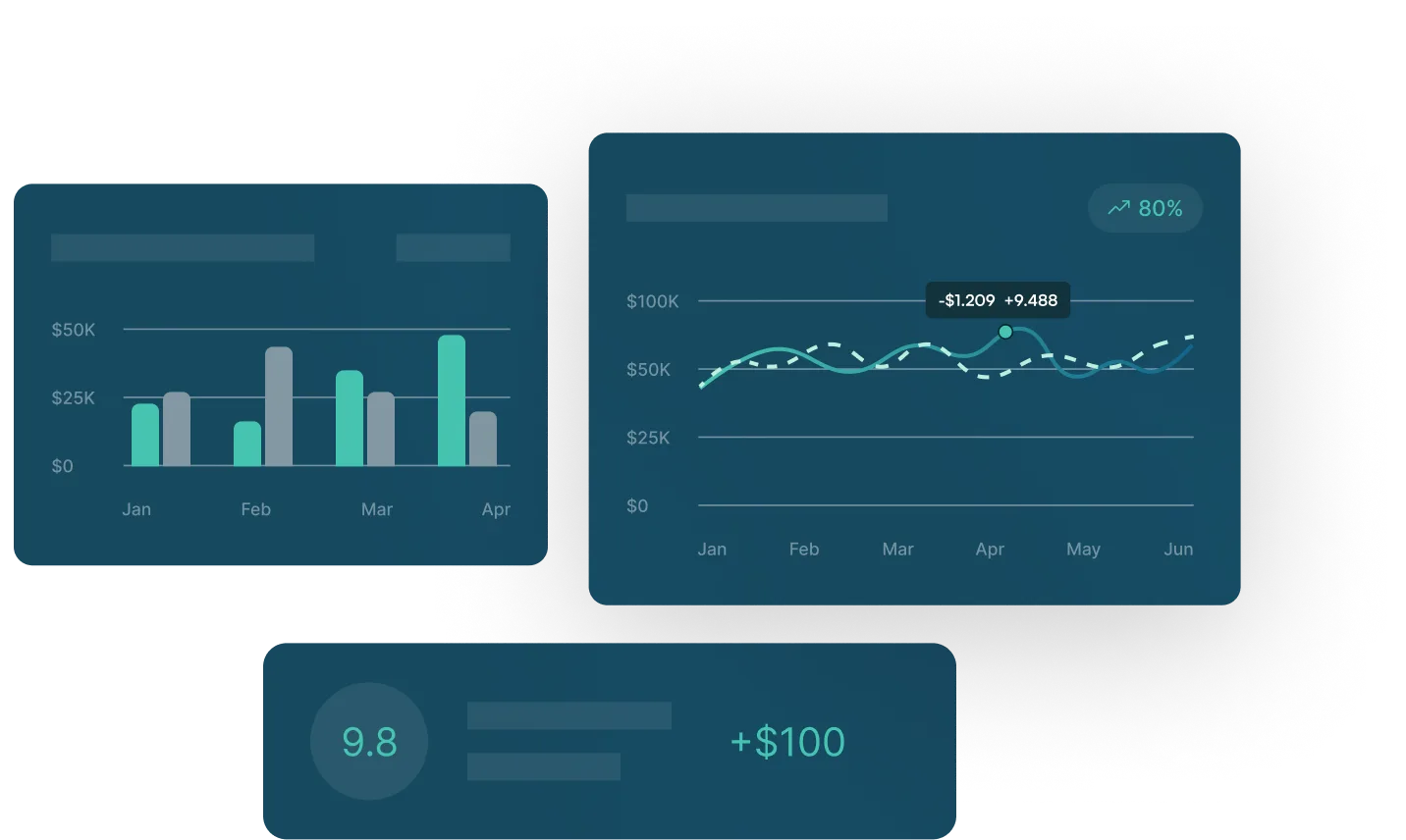Are Your Treasury & Accounting Teams Disconnected?
.jpeg)
.jpeg)
Treasurers are tasked with protecting the gain/loss line as well as foreign revenue, expenses and/or margins. So, it’s not unusual for Treasury departments to want to implement a foreign currency hedge program.
A balance sheet hedge program is usually the first hedge program Treasury will implement. There’s a lot to consider on the risk management side of this hedge strategy, but the accounting treatment of the derivatives is quite clear cut – fair value the derivative and record the offset to income each period.
Meanwhile, a cash flow hedge program gets a little more complicated for both Treasury and Accounting. Treasury teams often have experienced staff or find support from consultants to implement this type of program. Even when the Treasury department has experience, the Accounting team may be less prepared—having focused on accounting talent for core accounting challenges.
This hedging pitfall occurs when Treasury implements a hedging program and the Accounting department feels unprepared to identify and address the risks and related accounting. Let’s take a look at the exact disconnects, risks of each and ways to overcome them.
Disconnects & Risks
There can be several disconnects between the Accounting team and the Treasury team when a new hedge program is developed. These disconnects create a broader risk for the entire organization.
Special Hedge Accounting Treatment Qualification
Special hedge accounting rules are applied only if the hedge relationship meets certain requirements and designation documentation has been properly prepared. A lack of coordination may mean Treasury assumes the transactions qualify and that they are being designated in Accounting and Accounting thinks the same of Treasury. Trades executed under this scenario would not qualify for special hedge accounting.
Unfamiliar Instruments
Treasury could execute derivatives new to accounting.
Treasury Prepares Journal Entries
In the excitement of putting in place a hedging program, we frequently find Treasury taking over instrument identification, accounting and journal entry preparation. It is not uncommon (although it is ill-advised) for Treasury to prepare derivative accounting entries and Accounting to simply enter them into the general ledger.
Remedies & Controls
Special Hedge Accounting Treatment Qualification
Both Treasury and Accounting need to be familiar with the accounting requirements and clearly identify the roles and responsibilities within an appropriate control structure. Treasury should identify appropriate, qualifying exposures and meet the designation requirements for special hedge accounting, including identifying a probable qualifying hedged risk, preparing detailed documentation, identifying appropriate effectiveness tests or assertions. Accounting should receive and review the designation and other related documentation.
Unfamiliar Instruments
The Accounting team should be part of the exploration into new strategies and instruments to ensure they have the data and models as well as the relevant understanding necessary to value all instruments executed by the Company and to account for them properly. All derivatives and related designation documentation should be provided to accounting at the time of execution.
Treasury Prepares Journal Entries
Appropriate segregation of duties requires accounting to independently ensure completeness of the portfolio, independently value open derivatives on the balance sheet and appropriately apply special accounting rules. Treasury with their understanding of the exposures, instruments and rule sets should review and report on the accounting results against stated objectives.
Software solutions or outsourcing services can assist the accounting team to prepare special hedge accounting entries as well as documentation, testing, and disclosures.
Conclusion
Accounting needs to be involved in the development and implementation of any hedging program or changes to a hedging program. They play a critical role in the controls supporting a hedging program. Software and outsourcing services can provide accounting the tools to designate, track, value, account and disclose their derivative activities.
Are Your Treasury & Accounting Teams Disconnected?
Treasurers are tasked with protecting the gain/loss line as well as foreign revenue, expenses and/or margins. So, it’s not unusual for Treasury departments to want to implement a foreign currency hedge program.
A balance sheet hedge program is usually the first hedge program Treasury will implement. There’s a lot to consider on the risk management side of this hedge strategy, but the accounting treatment of the derivatives is quite clear cut – fair value the derivative and record the offset to income each period.
Meanwhile, a cash flow hedge program gets a little more complicated for both Treasury and Accounting. Treasury teams often have experienced staff or find support from consultants to implement this type of program. Even when the Treasury department has experience, the Accounting team may be less prepared—having focused on accounting talent for core accounting challenges.
This hedging pitfall occurs when Treasury implements a hedging program and the Accounting department feels unprepared to identify and address the risks and related accounting. Let’s take a look at the exact disconnects, risks of each and ways to overcome them.
Disconnects & Risks
There can be several disconnects between the Accounting team and the Treasury team when a new hedge program is developed. These disconnects create a broader risk for the entire organization.
Special Hedge Accounting Treatment Qualification
Special hedge accounting rules are applied only if the hedge relationship meets certain requirements and designation documentation has been properly prepared. A lack of coordination may mean Treasury assumes the transactions qualify and that they are being designated in Accounting and Accounting thinks the same of Treasury. Trades executed under this scenario would not qualify for special hedge accounting.
Unfamiliar Instruments
Treasury could execute derivatives new to accounting.
Treasury Prepares Journal Entries
In the excitement of putting in place a hedging program, we frequently find Treasury taking over instrument identification, accounting and journal entry preparation. It is not uncommon (although it is ill-advised) for Treasury to prepare derivative accounting entries and Accounting to simply enter them into the general ledger.
Remedies & Controls
Special Hedge Accounting Treatment Qualification
Both Treasury and Accounting need to be familiar with the accounting requirements and clearly identify the roles and responsibilities within an appropriate control structure. Treasury should identify appropriate, qualifying exposures and meet the designation requirements for special hedge accounting, including identifying a probable qualifying hedged risk, preparing detailed documentation, identifying appropriate effectiveness tests or assertions. Accounting should receive and review the designation and other related documentation.
Unfamiliar Instruments
The Accounting team should be part of the exploration into new strategies and instruments to ensure they have the data and models as well as the relevant understanding necessary to value all instruments executed by the Company and to account for them properly. All derivatives and related designation documentation should be provided to accounting at the time of execution.
Treasury Prepares Journal Entries
Appropriate segregation of duties requires accounting to independently ensure completeness of the portfolio, independently value open derivatives on the balance sheet and appropriately apply special accounting rules. Treasury with their understanding of the exposures, instruments and rule sets should review and report on the accounting results against stated objectives.
Software solutions or outsourcing services can assist the accounting team to prepare special hedge accounting entries as well as documentation, testing, and disclosures.
Conclusion
Accounting needs to be involved in the development and implementation of any hedging program or changes to a hedging program. They play a critical role in the controls supporting a hedging program. Software and outsourcing services can provide accounting the tools to designate, track, value, account and disclose their derivative activities.
.jpeg)
See GTreasury in Action
Get connected with supportive experts, comprehensive solutions, and untapped possibility today.






























.png)







.png)












.jpeg)

.jpeg)


.jpeg)







.jpeg)

.jpeg)







.jpeg)

.jpeg)








.jpeg)

.jpg)


.jpg)





